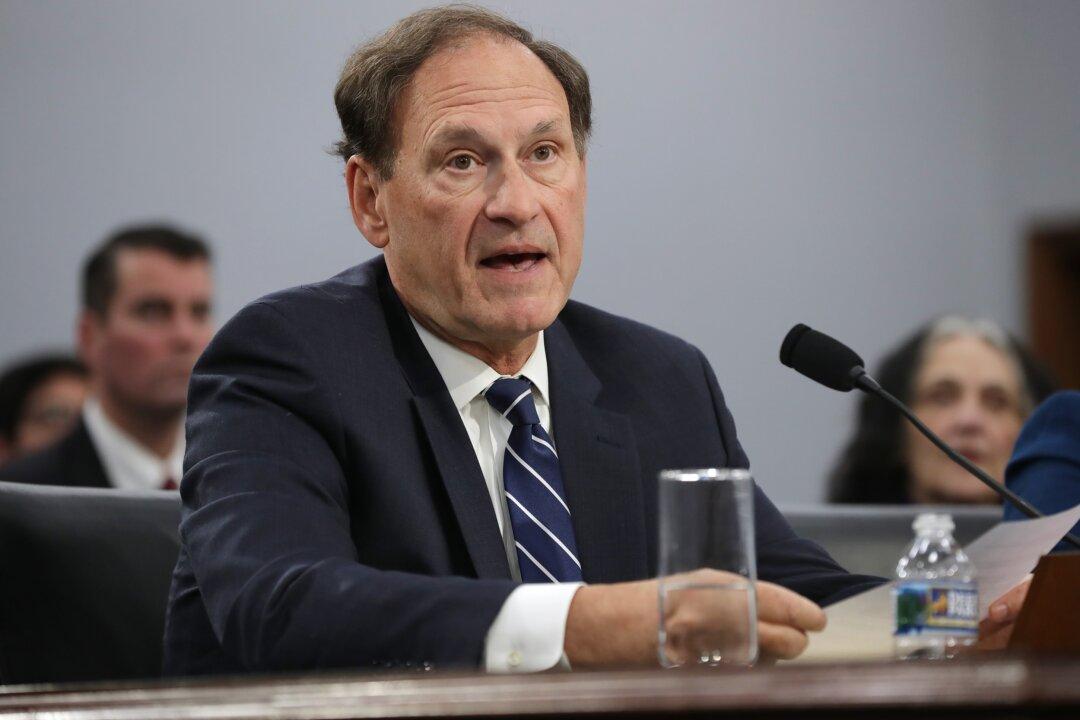Associate Justice Samuel Alito said on Jan. 31 that he was “not surprised” by the reaction to comments he made last year about state restrictions in response to the CCP virus pandemic.
Alito, 70, had told a Federalist Society virtual convention last November that he thought the CCP (Chinese Communist Party) virus pandemic serves as a “sort of constitutional stress test.” He argued that the United States has “never before seen restrictions as severe, extensive, and prolonged as those experienced for most of 2020” and raised concerns over their impact on individuals’ civil liberties.




